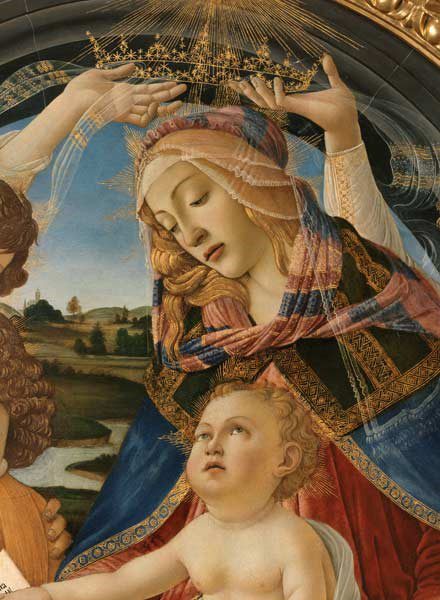“All Generations Will Call Me Blessed”
Immediately following Elizabeth’s declaration of Mary’s blessedness among women, the Virgin bursts into a song of joy, praising God for His faithfulness and mercy. This hymn of praise is one of the most beautiful prayers in the history of Christianity. In fact, the words of Our Lady in Luke 1: 46-55 have become a fundamental devotion in the piety of the Church being repeated by millions of Christians throughout the centuries as a seamless summary of the soul’s sense of gratitude before the grandeur of God’s love. Mary begins by saying, “My soul proclaims the greatness of the Lord” (Lk. 1:46). The Greek word used for “proclaims” is megalunó, a verb coming from the prime root megas which literally means “to magnify (in the sense of a ‘magnifying glass’), extol or enlarge.” Thus, within the first line of this canticle we see revealed an essential characteristic of the Blessed Virgin Mary: hers is the heart that “magnifies”, brings into complete focus, humanity’s response to the salvation God desires to share with the world in the person of Jesus Christ. After all, was it not from her lips that the human race said “Yes” to God’s will? The whole world awaited Mary’s reply in Nazareth; all of creation held its breath longing for the Virgin’s acceptance of her destiny. St. Bonaventure captures this sentiment well in a sermon he wrote to Our Lady: “The price of our salvation is offered to you. We shall be set free at once if you consent. Tearful Adam with his sorrowing family begs this of you, O loving Virgin…for on your word depends salvation for all the sons of Adam, the whole of your race.” Mary knows what the acceptance of God’s will means for her: “From this day forward all generations will call me blessed” (Lk. 1:48). She does not say these words out of pride, but rather from a place of humiliation and astonishment. “For He [God] has looked upon His handmaid in her lowliness…the mighty One has done great things for me and holy is His name!” (Lk. 1:48-49). She truthfully recognizes the level of dignity to which God has raised her. Her desire is simply to love Him and see Him adored. Yet, for a reason beyond her understanding, He has chosen to exalt her alongside her Son. He has chosen her to be the personal embodiment of “Daughter Zion” (Zep. 3:14) and now, through her trusting confidence in His will, He will help “Israel His servant according to His promise to Abraham” (Lk. 1:55). How could anyone possibly question the honor given to the Blessed Virgin Mary by God Himself? How could we call ourselves Christians if we are disobedient in God’s love for this woman whom all generations call blessed?



